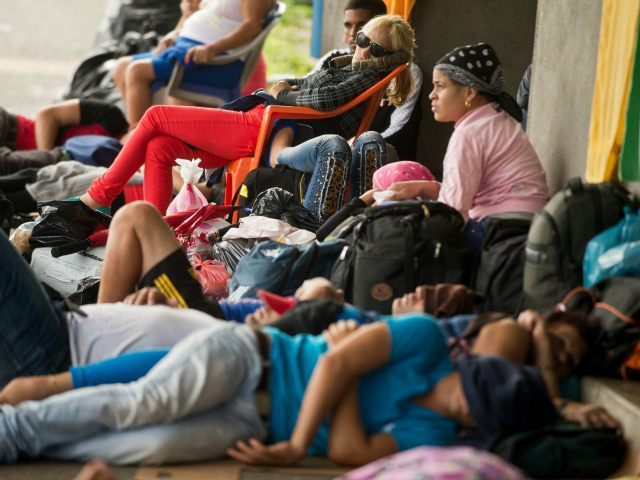As many as 40,000 Cubans seeking asylum could cross the southern U.S. border in the coming months, Rep. Henry Cuellar (D-TX) tells local KGBT-TV.
As the U.S. and Cuba move toward more normalized relations, Central America has already experienced an influx of Cubans seeking to migrate northward, seeking political asylum in the U.S. The concern for many Cubans is that, as the relationship between the U.S. and Cuba stabilizes, the special protections and status the U.S. has granted Cubans since the 1960s will end.
“It puts fear in them that they’re going to get rid of this 1966 Cuban Adjustment Act that allows them to come into the United States and step on land and then they stay here,” Cuellar told KGBT.
Cuellar said the policy is a “magnet” for Cubans and one that should be changed to level the playing field for all migrants to the U.S.
According to KRGV, in the next few days at least 7,000 Cuban refugees are expected to come to the U.S.-Mexico border seeking those special protections that put them on the fast track to legal status and eventual citizenship.
Cubans say the situation in their home country, despite the efforts to normalize relations with the island dictatorship, remains poor.
“My people are still rationing food, they’re still making $20-$30 a month,” McAllen businessman Lazaro Fernandez Jr. told KGBT. Fernandez came to the U.S. in the 1960s as a child.
Cuellar told KRGV that Cubans have started arriving at the Laredo’s Point of Entry everyday seeking asylum after journey through Central America and Mexico.
DHS Sec. Jeh Johnson has indicated that the administration does not have plans to change the 1966 policy, according to the Wall Street Journal, and Customs and Border Protection say they are prepared to process the border influx.
“CBP officers will process Cuban nationals in accordance with established procedures as expeditiously as possible while maintaining requirements and standards for individuals in our care,” CBP said in a statement to KGBT. “CBP continues to work with our federal, state and local partners to minimize the impact to everyday trade and travel.”

COMMENTS
Please let us know if you're having issues with commenting.